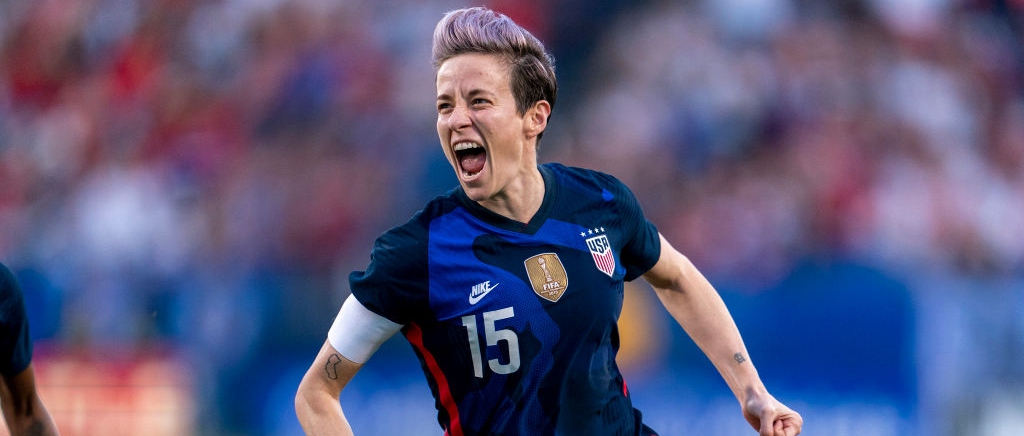As the WNBA Finals tip off on Friday night, Megan Rapinoe — who has been living in the WNBA Bubble all summer with girlfriend Sue Bird — took to The Players Tribune to jot a preview of the series, in which Bird and the Storm will take on the Las Vegas Aces. While Rapinoe urged fans to tune in and take in the high-level basketball she expects in the series, she also took the opportunity to highlight the discrepancy between how the USWNT was covered by national mainstream media during their World Cup runs and how the WNBA is covered.
Rapinoe notes how the USWNT broke boundaries last year as they won their second World Cup in a row, leading SportsCenter and generating a ton of buzz on social media. But despite the WNBA’s historic commitment to racial justice activism and their ability to turn out a highly entertaining season on a moment’s notice from their Bubble in south Florida, Rapinoe acknowledges they’ve hardly gotten the same attention.
And what I mean by that is: When it comes to U.S. women’s soccer, the general perception is that — let’s face it — we’re the white girls next door. The straight, “cute,” “unthreatening,” “suburban” white girls next door. It’s not actually who we are — the WNT’s racial diversity, though not yet where it needs to be, is improving every year. And, you know, breaking news….. I’m gay. But by and large, that’s the perception. And it’s certainly how we’re marketed to a lot of people.
So when I see millions of viewers for our matches, and I see us on the front page of the Times, and I see the way we’re leading SportsCenter and how it all just feels like a big f*cking deal — trust me, like I said, nothing could make me prouder. Generations of women helped build that, and believe me I know: I’m standing on the shoulders of GIANTS. I don’t take any of that for granted for a single second.
Rapinoe went one step further to explain that the reason she believes there is a difference is that the WNBA is predominantly Black and has many LGTBQ+ players, while the perception of the USWNT is that those women were, as Rapinoe deemed them above, “white girls next door.” Using her place as a role model for many female athletes around the country, Rapinoe pleads with readers to reconsider their concept of feminism if it does not include supporting the diverse and brave athletes in the WNBA as much as the USWNT.
https://twitter.com/britnidlc/status/1312067555507531781
Rapinoe has long used her popularity to highlight inequities within her sport and industry. When she was given Sports Illustrated‘s Sports Person of the Year last winter, Rapinoe called out the publication and the broader sports media business for the rarity of women being honored for such awards. In this case, Rapinoe is using her place on the USWNT to encourage fans to continue to push for the type of sports landscape they want to see, and how the WNBA should be part of it.







